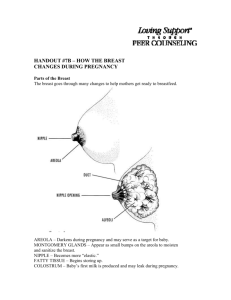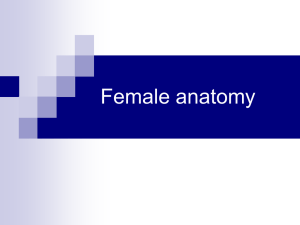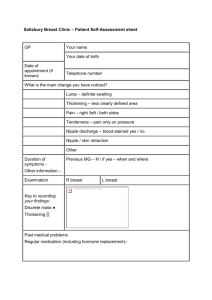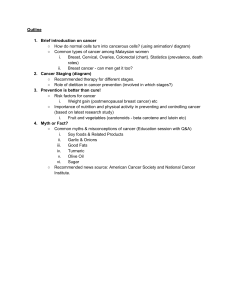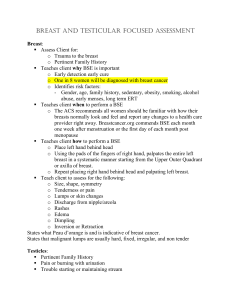Breast & Testicular Exam Assessment Guide
advertisement
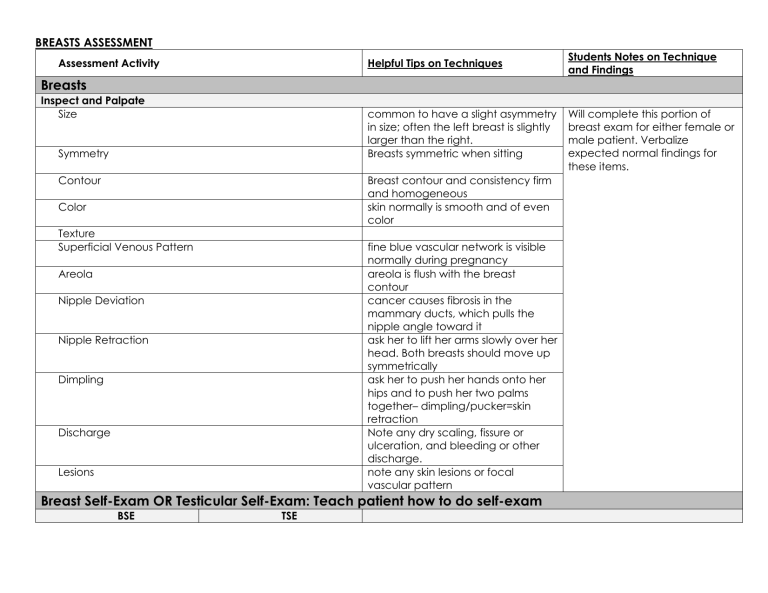
BREASTS ASSESSMENT Assessment Activity Helpful Tips on Techniques Students Notes on Technique and Findings Breasts Inspect and Palpate Size common to have a slight asymmetry in size; often the left breast is slightly larger than the right. Breasts symmetric when sitting Symmetry Contour Breast contour and consistency firm and homogeneous skin normally is smooth and of even color Color Texture Superficial Venous Pattern fine blue vascular network is visible normally during pregnancy areola is flush with the breast contour cancer causes fibrosis in the mammary ducts, which pulls the nipple angle toward it ask her to lift her arms slowly over her head. Both breasts should move up symmetrically ask her to push her hands onto her hips and to push her two palms together– dimpling/pucker=skin retraction Note any dry scaling, fissure or ulceration, and bleeding or other discharge. note any skin lesions or focal vascular pattern Areola Nipple Deviation Nipple Retraction Dimpling Discharge Lesions Breast Self-Exam OR Testicular Self-Exam: Teach patient how to do self-exam BSE TSE Will complete this portion of breast exam for either female or male patient. Verbalize expected normal findings for these items. Assessment Activity Observe pt’s arms at side, arms over head, arms pushing in at hips, pushing hands together at chest level & leaning forward to assess for pulling and retractions. Performs breast exam while lying down using triple touch technique, vertical strip method to assess for masses. Teach frequency of BSE Teach when to contact Primary Care Provider Helpful Tips on Techniques Teach pt to do exam while in shower, standing; warm water relaxes scrotal sac Performs the testicular exam by rolling the testicle between thumb and first two fingers to assess for masses. Teach frequency of TSE Teach when to contact Primary Care Provider Demonstrate exams on breast or testicular model. Students Notes on Technique and Findings Will teach TSE if pt is male. Will teach BSE if pt is female.
